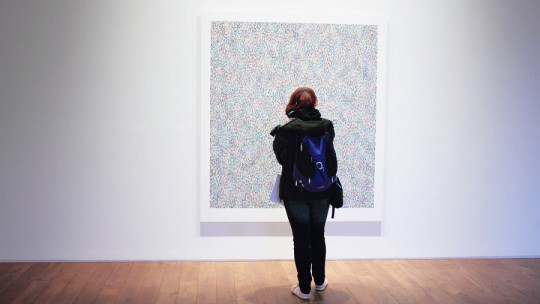
Highly sensitive people present a series of characteristics that lead them to live their daily lives in a qualitatively different way from the rest. That is why understanding what happens to them is key to not feeling bad about everyday situations, given that in most cases human societies have been designed with a model of the average citizen in mind who does not show that level of sensitivity.
To better understand what this predisposition to live intensely the elements of daily life consists of, here we will explain what they are. the keys to know if you are a highly sensitive person
What is sensory processing sensitivity?
The concept of sensory processing sensitivity was coined by researchers Elaine and Arthur Aron in the mid-90s, and was described as a personality type that reflects patterns of neuropsychological organization in the way of processing stimuli, emotions and thoughts. That is, sensory processing sensitivity shows us a way to experience both psychological and perceptual processes, as well as the way in which certain groups of neurons interact with each other, giving rise to this type of experiences.
Specifically, this characteristic is reflected in a high level of sensitivity towards stimuli and towards mental contents that arise through the processing of information received or stored in memory, and from it, Elaine Aron and Arthur Aron referred to it as “ highly sensitive people” to individuals who present this personality trait.
But… What exactly does it mean to have sensory processing sensitivity on a daily basis? This is clearly seen in the fact that people who They react with unusually high emotional intensity to events that affect others much less compared to the average human being, but it doesn’t stop there. For example, there are certain experiences that either exert a visible and very evident change in highly sensitive people, but do lead them to find in these situations a series of nuances that go unnoticed by other people and that are stimulating to them, making them Direct your attention towards those experiences, objects or places and remain psychologically “soaking” in them.
Taking into account the above, these are the main key ideas to consider to understand what and how highly sensitive people are

How do I know if I am a highly sensitive person?
The only way to consistently identify whether a person has sensory processing sensitivity is go to psychology professionals since in this way it is possible to study each individual case separately.
However, guidelines like the ones we will see below help to have an approximate view of the extent to which someone can be a highly sensitive person. Now, simply identifying with one or two of these characteristics does not mean that we have sensory processing sensitivity, or even that they are compatible with other neurological or psychological phenomena (for example, many people with autism are very sensitive to stimuli).
1. Compared to other people, it often happens that daily situations overwhelm me emotionally.
Many situations that generate stress affect highly sensitive people so much that they They notice that they need to take a few minutes to recover or rest, and this happens much more frequently than with other people. Furthermore, the experiences that produce this can be much more subtle or brief than those that generate this reaction in the average person (for example, a brief dispute with someone who has not directly criticized us, but who has adopted a passive attitude). aggressive).
2. I show a marked predisposition to empathy
This type of sensitivity is also reflected in the person’s ability to “connect” automatically and involuntarily with the emotional states of others both for the good and the bad.
3. It is common for an image or object to remain in my mind for several minutes, “hijacking” my attention.
Since highly sensitive people automatically detect many nuances in their surroundings, their consciousness easily becomes “hooked” on all types of objects, places or interactions, which makes them feel compelled to think about it and even relive the experience in their memory immediately after it happens.
- Related article: “The 15 types of care and what are their characteristics”
4. Very intense or sudden stimuli upset me more than most
Phenomena such as thunder, lightning or the reflection of sunlight from a window tend to visibly upset highly sensitive people. However, This is not always a problem nor does it entail an emotional or psychological change that lasts more than a few seconds.
- You may be interested: “The 8 types of emotions (classification and description)”
5. I have many moments where extreme introversion and extraversion quickly take turns.
These people seem to lurch between introversion and extraversion On the one hand, they feel highly stimulated by many elements of their physically accessible environment; On the other hand, these experiences remain more in their consciousness, making them easily absorbed.
6. Creative spaces and objects attract my attention a lot
When creative intentionality is added to the richness of stimuli, as occurs with works of art and many museums, this causes the sensitivity of sensory processing to fully unfold and greatly affect the mental state of the person, which Almost involuntarily, he begins to fully open his consciousness to those kinds of places and objects
Are you interested in having professional psychological assistance?
If you are looking for psychology services, contact us.
In Psychoconsulting We work from a combination of cognitive-behavioral therapy, brief strategic therapy and coaching, helping both individuals who want to overcome an emotional or behavioral problem, as well as couples, families and companies that need support in conflict resolution, improvement of communication dynamics, stress management, etc. We offer face-to-face sessions in Barcelona and also through the online modality by video call.








